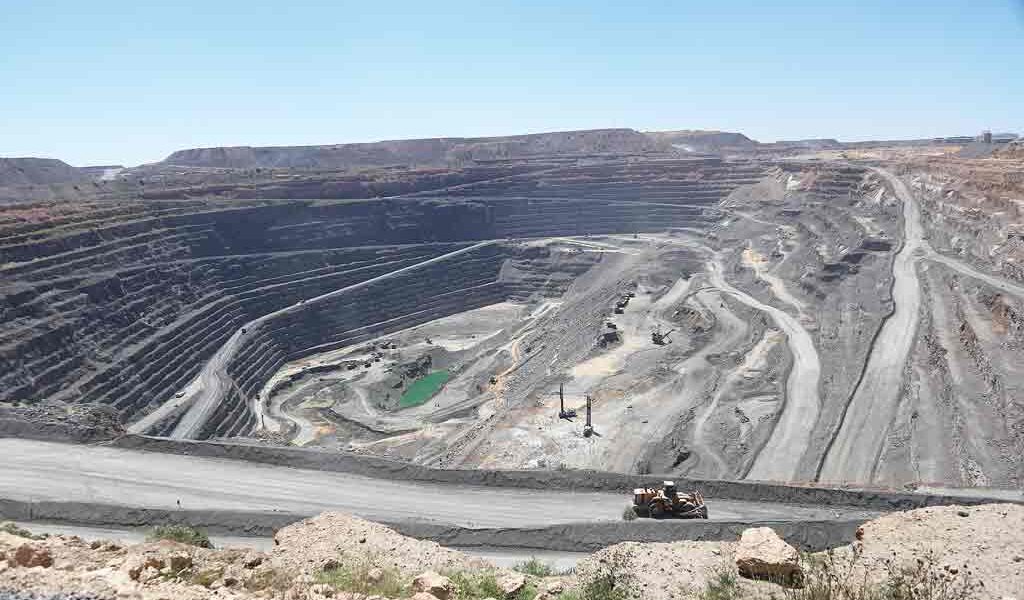With 24 million of the total 35 million carats of De Beers worldwide diamond production being from Botswana in 2018, the country remains the mighty conglomerate’s cash cow but benefits the least of all nations whose companies successfully vie for procurement tenders at the company that says “contractual obligations” prevent it from explaining this gaping discrepancy. KEABETSWE NEWEL reports.
While De Beers makes the bulk of money here in Botswana, billions of pula leave the country annually and are pocketed by foreign companies that dominate the procurement budget of the diamond mining giant, The Botswana Gazette has established.
Anglo American’s Tax and Economic Contribution Report 2018 reveals that De Beers in Botswana spent US672.8 million (P7.1 billion) in procurement of goods and services in and out of Botswana. Of that figure, the company says US551.8 million (P5.8 billion) was spent strictly on “local procurement,” which should ordinarily mean the money was spent on Botswana-owned companies. However, an examination of this by The Botswana Gazette shows that De Beers’ application of local procurement refers to both citizen-owned companies and foreign companies operating in Botswana, which results in a completely different reality.
The External Communications Manager of De Beers Group, Kesego Okie, could not reveal at least the top 10 companies by value which benefit from De Beers procurement. Okie says “contractual obligations’ prevented her from providing such details but has no problem sharing the extensive range of products and services procured from both Botswana based companies and citizen owned companies by De Beers in 2018 that covers earth moving machines, mining repairs and maintenance, drilling, plant maintenance, construction, office supplies, general maintenance, security, transportation, catering, and IT and communications.
Those in the know say a huge chunk of De Beers procurement budget finances acquisition of earth moving machines and their repairs, mostly from foreign companies some of which have subsidiaries here in Botswana. Local owned companies are mostly contracted for insignificant tenders like office supplies, which are of little value.
According to Okie, De Beers classifies Botswana subsidiaries of foreign companies as local companies when they are actually not even branches of their parent companies. According to Okie, where there may be no local companies providing a certain service that De Beers may require, the diamond mining conglomerate turns to foreign companies.
“In the event where local companies do not have the required technical expertise for a service, the company then seeks such from foreign-based companies and specifies that the foreign company partner with a local company for skills transfer,” she says. Okie argues that De Beers’ commitment to growth of the local procurement industry continues to bear fruit and that each of the De Beers Group business units based in Botswana realises growth in terms of figures of local expenditure on an annual basis.
De Beers is owned 85 percent by Anglo American while the Government of Botswana owns 15 percent. De Beers makes most of its money here in Botswana through a 50/50 joint venture with the government. In 2018, the conglomerate produced a total of 35 million carats from around the world, a whopping 24 million of them from here in Botswana alone. Debswana’s biggest contract ever (Mining contract) is worth billions of pula but has since 2010 been repeatedly given to an Australian-controlled company. Cumulatively P25 billion has been given to the Australian outfit since 2010, much to the detriment of Botswana companies and Batswana.
Last year, Debswana Mining Company, the purportedly 50/50 joint venture between the Government of Botswana and the De Beers Group, awarded a P15.7 billion to Majwe Mining Joint Venture to commence Debswana’s Cut 9 mining contract. In 2010, Majwe was engaged for P9 billion.
Majwe Mining is the Australian owned company that has enjoyed seamless contract renewals from Debswana since 2010. Majwe Mining is owned 70 percent by Thiess, a global mining services provider that is owned by the Australia-based CIMIC Group. The remaining 30 percent is controlled by Bothakga Burrow, a Botswana owned company.
In a previous engagement, Corporate Affairs Manager – External Communications at Debswana, Agatha Sejoe, said for a contract as big as Cut 9, there was no Botswana owned company that fit for the job and that Botswana companies were sub-contracted by Majwe. Further, it emerged at the 2018 Diamond Symposium Conference that local companies handle less than 10 percent of De Beers annual event management budget commitment that is estimated at somewhere between P15 million and P30 million per annum. Since 2015, local companies say De Beers has preferred and used South African companies over local suppliers. Last year In2structure, a South African company specialising in designing and manufacturing of custom tailor made portable venues, was engaged to supply a large dome at the airport for the diamond conference. Eyethu Events was tasked with the Gaborone Main Mall aspect of the event, the Entrepreneur Catalyst, and the dinner for the conference that was styled Diamond Banquet. DKSS Audio and Video was engaged for sound, stage and lighting for the Diamond Conference, the Entrepreneur Catalyst and the Diamond Banquet. Gearhouse was engaged for sound, stage and lighting for the Diamond Banquet while an unnamed South African PR firm that De Beers has declined to name was engaged for management of international media.
This has been found to be in violation of Botswana’s Mines and Minerals Act and numerous other laws and policies. The Mines and Minerals Act Chapter 66.01 provides for the holder of a mining licence to procure locally.
TAX AND ROYALTIES
In 2018, De Beers paid US874.8 million (P9.3 billion) to the Government of Botswana in total taxes and royalties. Corporate tax amounted to US448.8 million (P4.7 billion), royalties and mining taxes amounted to US326.6 million (P3.4 billion) while other taxes and payments totalled US99.4 million (P1 billion).




